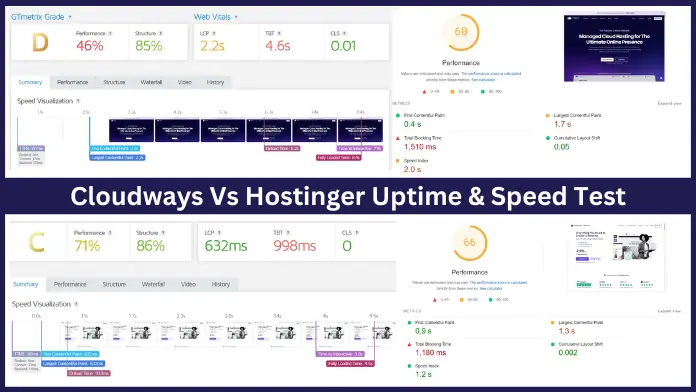
Padma Vibhushan Ratan Naval Tata is not just a name but a symbol of excellence, integrity, and business acumen in India and worldwide. Born on 28 December 1937 in the prestigious Tata family, Ratan Tata has lived a life filled with numerous achievements, profound philanthropy, and unwavering ethics. He joined Tata Sons, the holding company of the Tata Group, as its chairman in 1991, worked for it till 2012, and took it to new heights. Even after stepping down from his official role, he remains a highly influential figure, admired for his business insights and contribution to society. And his life journey ends on 10 October 2024. A great industrialist of our country who took India to new heights and left no stone unturned in getting global recognition, that star has left us all and gone to God today.
In this article, we will delve deep into the life of Ratan Naval Tata, tracing his journey from his early days to his incredible achievements in the corporate world and his enduring legacy in philanthropy and nation-building.

Ratan Tata was born into the prestigious Tata family, which is known for its immense contribution to Indian industry and society. He was the great-grandson of Jamsetji Tata, the founder of the Tata Group. He was raised by his grandmother Lady Navajbai Tata. Since his parents Naval Tata and Sooni Tata separated when Ratan Tata was 10 years old, Ratan Tata faced many struggles in his early life. He was very talented. He did his schooling at Cathedral & John Connon School in Mumbai and for further education; he completed his graduation in architecture from Cornell University in the United States in 1962. After that in 1975, he completed the management program from Harvard Business School.
Ratan Tata Career Beginnings: Entering Tata Group
Ratan Tata joined the Tata Group in 1962. He first started in a low-profile role on the shop floor of Tata Steel’s Jamshedpur plant when he returned from the United States. There he learned the intricacies of manufacturing and steel production. He showed his dedication to understanding by learning from grassroots staff. In 1971, he was appointed the director-in-charge of National Radio and Electronics Corporation NELCO. NELCO was struggling at that time. The Tata Group took it over but due to economic recession and other reasons it had to be shut down. Finally, in 1991, Ratan Tata replaced J.R.D. Tata is the chairman of Tata Sons, the holding company of the Tata Group.
Global Expansion and Major Acquisitions
Some of Ratan Tata’s notable achievements include transforming the Tata Group from an India-centric business to a global conglomerate. Many high-profile international business acquisitions were made under Ratan Tata’s leadership, including the following.
These acquisitions were not just about expanding the Tata Group’s global footprint but also about establishing Indian businesses as competitive players on the world stage.
The Tata Nano: A Vision for the Common Man
Ratan Tata was a man of a very innovative mind and understood the problems of the common man. On this basis, in 2008, he launched a project which he named Tata Nano. It is commonly called the common man’s car. It was the cheapest car in the world. He wanted every person to have a car and make transportation easy for everyone. Although the Nano did not succeed, this thinking of Ratan Tata shows his inclination towards social needs and the well-being of the common man.
Leadership Philosophy and Business Ethics

The specialty of Ratan Tata’s leadership was that he believed more in long-term success than immediate success. This thinking increased the size of the Tata Group so much that today it is known globally. His policies were very effective. Tata Group is another name for trust. His companies are known for their quality, trust, and social responsibility. Ratan Tata is known for his simplicity. Despite being among the richest people in India, Ratan Tata lived a simple lifestyle and inspired the youth to entrepreneurship and was also a source of inspiration for the youth.
Philanthropy: Giving Back to Society
While Ratan Tata is best known for his business acumen, his contributions to society are equally significant. A majority of the profits from the Tata Group’s business ventures are funneled back into society through Tata Trusts, one of the oldest and largest charitable organizations in India.
Tata Trusts focus on initiatives in healthcare, education, rural development, and the environment. Some of their major initiatives include:
During the COVID-19 pandemic, Ratan Tata was quick to pledge substantial financial aid to support healthcare and relief efforts, further cementing his legacy as a philanthropist.
Ratan Tata Awards and Recognition
Ratan Tata’s contributions to industry and society have earned him numerous awards and accolades. Some of the most prestigious include:
Retirement and Legacy
Ratan Tata ji resigned after being the chairman of Tata Sons till 2012 and handed over the leadership to Cyrus Mistry. Along with this, he started focusing on advising the youth to become entrepreneurs and he invested in many companies like Paytm, Ola, and Urban Ladder and created new employment opportunities. Ratan Tata ji was not limited to business only, he has set an example for the coming generations and the youth to move ahead by taking inspiration from him. Through his lifestyle, he taught that success and morality can go together life can be lived simply and one can move ahead by making one’s weakness his strength.
Conclusion: A Life of Purpose and Impact
No matter how much is written about Ratan Tata, it still seems less. Ratan Tata’s life is a source of inspiration for everyone. He had leadership ability, foresight, and special qualities of social service. Tata Group is also famous for its philanthropy in the country and abroad. His influence in India and the world is incomparable.
He was more than a businessman, he was a great human being, a leader who thought for honesty, innovation, compassion, and the welfare of the common man in every endeavor. India is moving ahead on the world stage. If anyone’s name is taken for its contribution, then the name of Tata Group will be written in golden letters at the top. Ratan Tata’s name, who has always worked for the progress of the country, will always be remembered by this country.


